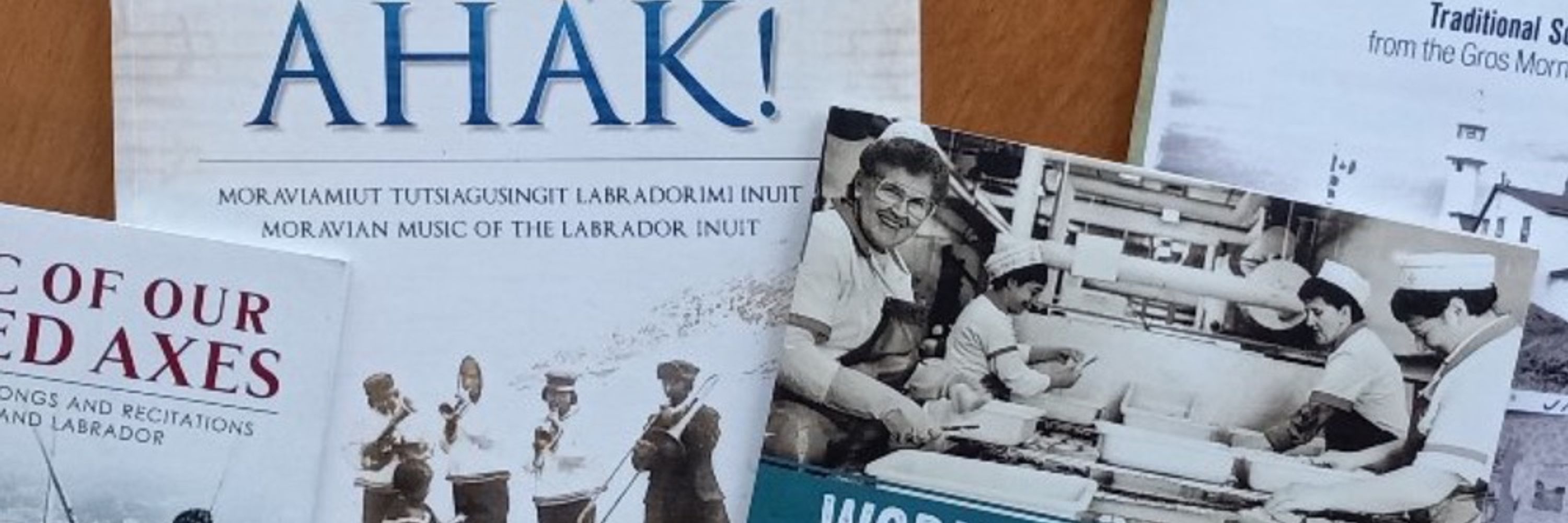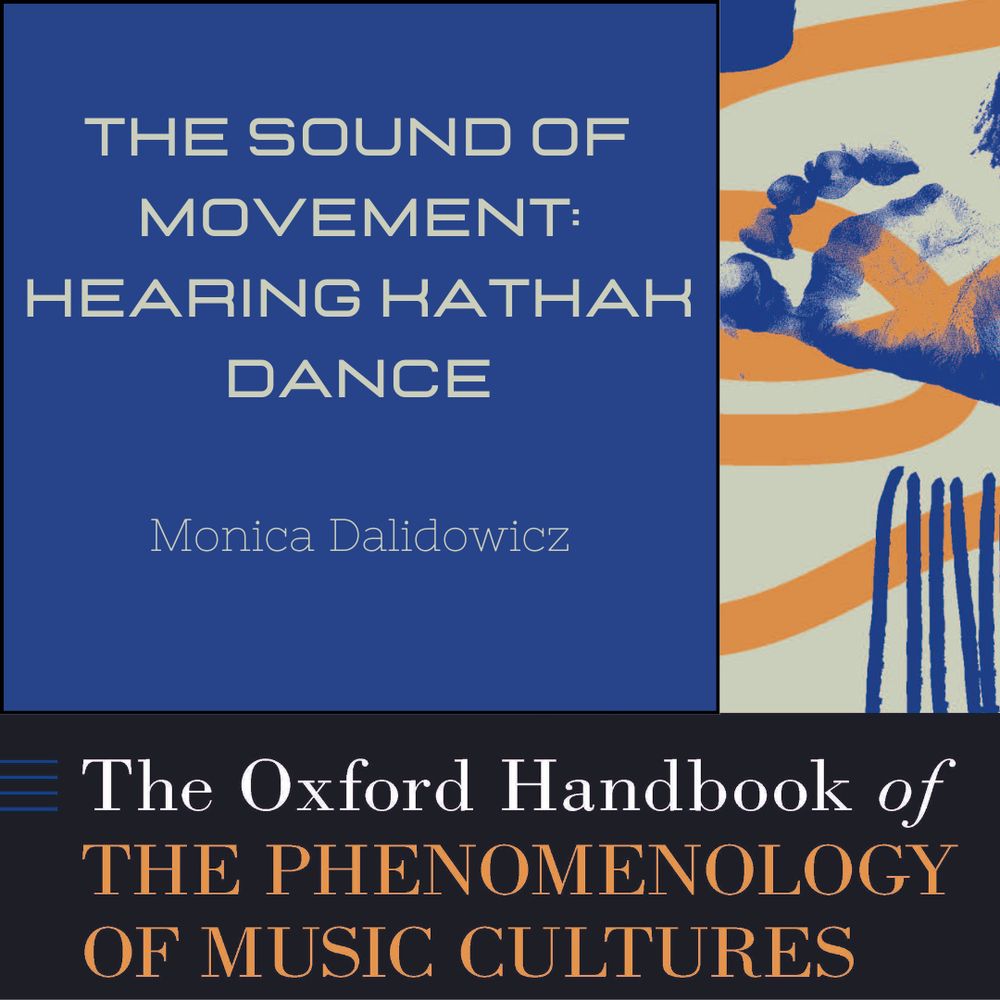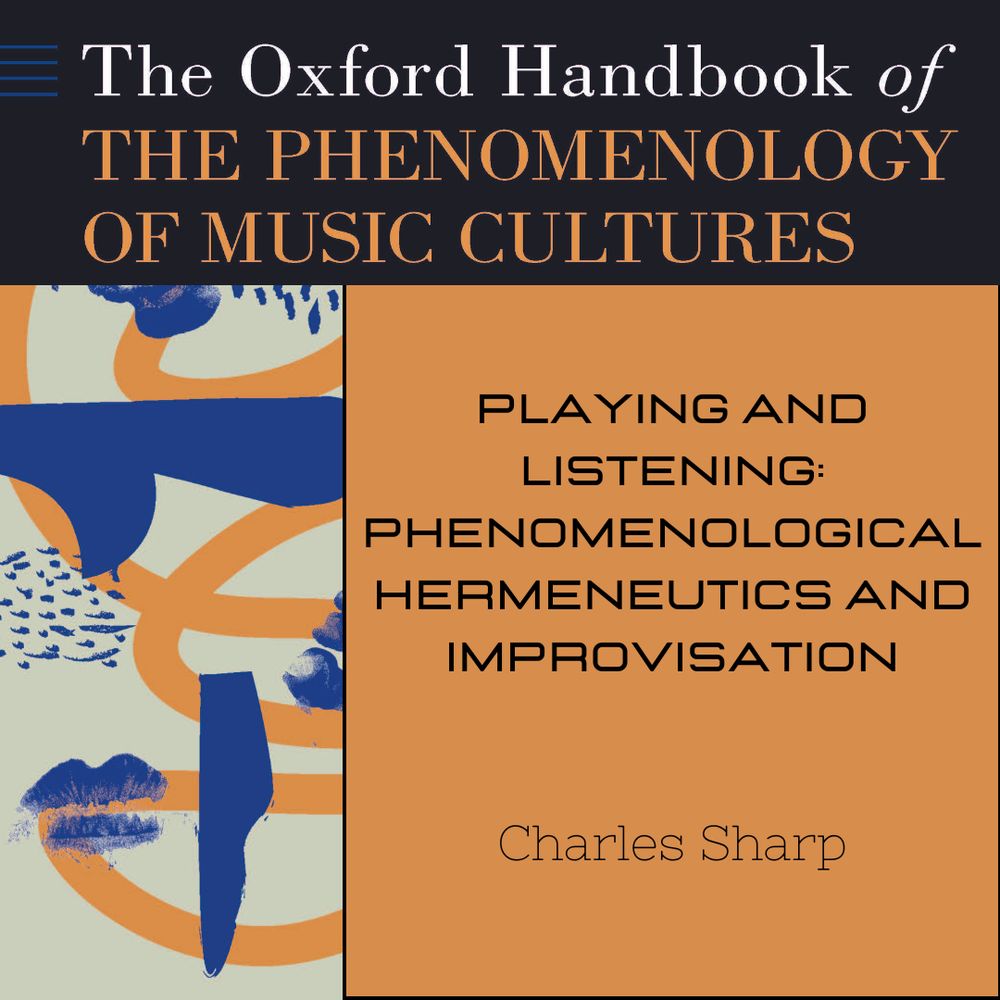
Publisher of Music Research Annual and the Back-on-Track Audio Publication Series.
Keep up the good work, Andrina!

Keep up the good work, Andrina!

Featuring Pamela Morgan, Maria Peddle, Graham Wells, Catherine Wright and Jim Payne.
Watch is now on our YouTube page by following this link!
www.youtube.com/watch?v=1mi7...

Featuring Pamela Morgan, Maria Peddle, Graham Wells, Catherine Wright and Jim Payne.
Watch is now on our YouTube page by following this link!
www.youtube.com/watch?v=1mi7...
This collection contains audio and video field recordings made by folklorist Jean Trudel in Quebec between 1965 and 1977.

This collection contains audio and video field recordings made by folklorist Jean Trudel in Quebec between 1965 and 1977.

In "Towards a Phenomenology of Rasa: Theorizing from Ras in Sikh Sabad Kīrtan Practice,"Inderjit N. Kaur analyses the notion of ras (flavour/essence) in performance, exploring the Sabad Kīrtan practice from historical documentation to present-day California's continuous tradition.

In "Towards a Phenomenology of Rasa: Theorizing from Ras in Sikh Sabad Kīrtan Practice,"Inderjit N. Kaur analyses the notion of ras (flavour/essence) in performance, exploring the Sabad Kīrtan practice from historical documentation to present-day California's continuous tradition.

In “Scrape, Brush, Flick: The Phenomenology of Sound,” Katherine Young analyzes the nature of auditory encounters and their impact on our understanding of both the world and ourselves, examining the distinctive ways space appears in perceptual modes of listening and seeing.

In “Scrape, Brush, Flick: The Phenomenology of Sound,” Katherine Young analyzes the nature of auditory encounters and their impact on our understanding of both the world and ourselves, examining the distinctive ways space appears in perceptual modes of listening and seeing.

In “Sexed Bodies/(Im)Possible Bodies/Polyphonic Bodies,” Stephen Amico critiques traditional theories of gender that prioritize its discursive dimensions over all of its other aspects.

In “Sexed Bodies/(Im)Possible Bodies/Polyphonic Bodies,” Stephen Amico critiques traditional theories of gender that prioritize its discursive dimensions over all of its other aspects.
In his talk, "Streaming Virtuosities: Media Structures, Accelerated Fandom, and Alienation by Volume," Dr. VanderHamm explores how our online experiences of musical virtuosity are mediated by the digital platforms on which we consume them.
Watch now on MMAP's Youtube Channel!

In his talk, "Streaming Virtuosities: Media Structures, Accelerated Fandom, and Alienation by Volume," Dr. VanderHamm explores how our online experiences of musical virtuosity are mediated by the digital platforms on which we consume them.
Watch now on MMAP's Youtube Channel!

In “The Sound of Movement: Hearing Kathak Dance,” Monica Dalidowicz explores the relationship between movement and sound in Indian Kathak dance, showing how dancers perceive their bodies in motion through auditory cues and emphasizing the role of sound in guiding movement.

In “The Sound of Movement: Hearing Kathak Dance,” Monica Dalidowicz explores the relationship between movement and sound in Indian Kathak dance, showing how dancers perceive their bodies in motion through auditory cues and emphasizing the role of sound in guiding movement.
In “Playing and Listening: Phenomenological Hermeneutics and Improvisation,” Sharp considers improvisation as central to the relationship between musical experience and social life, arguing that it confronts us with both our finitude and our potential for change.

In “Playing and Listening: Phenomenological Hermeneutics and Improvisation,” Sharp considers improvisation as central to the relationship between musical experience and social life, arguing that it confronts us with both our finitude and our potential for change.
In “Facing the Musical Other,” Esther Clinton and Jeremy Wallach suggests new ways of understanding fieldwork in ethnomusicology as an ethical practice of encounter between researchers and research participants.

In “Facing the Musical Other,” Esther Clinton and Jeremy Wallach suggests new ways of understanding fieldwork in ethnomusicology as an ethical practice of encounter between researchers and research participants.

















